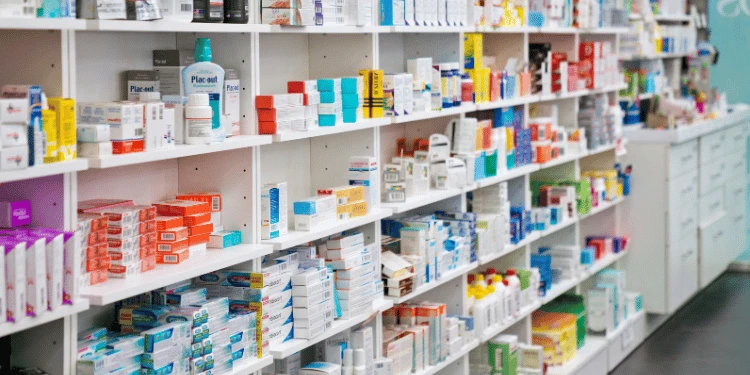Pharmacies to Deliver Expanded Frontline Healthcare Services Following £3 Billion Government Investment
Major Breakthrough After Prolonged Negotiations
Following extensive negotiations that spanned over a year with both Conservative and Labour administrations, a landmark agreement has been unveiled—aimed at revitalising England’s struggling pharmacy sector.
Health minister Stephen Kinnock has hailed the deal as a pivotal milestone in addressing what he described as “a broken pharmacy sector”.
The deal, valued at over £600 million for the initial two years, forms part of a broader £3 billion commitment.
This strategic funding initiative is expected to transform community pharmacies into more robust providers of essential healthcare services, thereby easing the strain on overwhelmed general practitioners (GPs).
Contract Signed to Resolve Prolonged Stalemate
A year-long impasse between the UK government and community pharmacies over the provision of vital health services has finally been brought to an end.
This significant development follows a protracted standstill that began when the previous contractual framework expired in March of the previous year, without a new agreement being reached under Rishi Sunak’s Conservative-led administration.
However, with Sir Keir Starmer’s Labour government now in office, decisive action has been taken.
After an additional nine months of consultation and negotiation, a revised contract has been finalised.
This updated framework includes an additional £617 million over two years and incorporates debt relief measures designed to restore financial stability to pharmacy owners.
Key Financial Commitments and Sector Impacts
In a move aimed at restoring confidence within the sector, the government has agreed to write off £193 million in debt associated with community pharmacies. This relief, scheduled to take effect from 1 April, will support pharmacy operators in preparing for a more sustainable financial year.
Despite these measures, concerns persist within the sector.
The National Pharmacy Association (NPA) has voiced caution, stating that the allocated funding still falls significantly short of the NHS’s own calculations regarding the true cost of delivering pharmacy services.
Reaction from Sector Leaders
Nick Kaye said:
“After enduring funding reductions totalling 40 per cent over the past decade, which have brought the sector to its knees, this agreement is a welcome indication of governmental support. Nonetheless, our members continue to face steep operational costs, and we will be reviewing the specifics carefully before determining our next steps.”
Although the financial package has been received as a step in the right direction, many within the industry remain mindful of the lasting impacts of chronic underfunding.
Free Morning-After Pill Now Available Nationwide
One of the most widely celebrated outcomes of this deal is the nationwide availability of the morning-after pill, now accessible free of charge through NHS-funded pharmacies.
For the first time in history, this essential emergency contraceptive will no longer be subject to postcode-based disparities or individual cost barriers, which previously saw women paying up to £30 in some regions.
This initiative is being positioned as a major victory in the ongoing fight to reduce health inequalities and ensure universal access to reproductive healthcare.

Health Minister Commends Reform and Looks Ahead
Health Minister Stephen Kinnock, who led the recent negotiations, spoke exclusively to The Independent and described the new agreement as a foundational moment for community health in England.
“This marks the beginning of a new chapter for our essential pharmacy network and the millions of patients who depend on it,” Kinnock explained. “By investing a record £3 billion, we are bringing critical services directly to local communities, reducing the need for hospital visits and supporting patients closer to home.”
He went on to commend The Independent for shedding light on what he referred to as a “tsunami of closures”, highlighting the urgent need for structural reform and funding realignment.
Expanding Services and Reducing GP Burden
The reforms introduced through this contract are expected to significantly ease pressure on GP services.
By enabling pharmacies to handle a broader range of medical needs, including routine consultations and prescription advice, the intention is to reduce the demand placed on primary care physicians and streamline the patient experience.
Among the core reforms being introduced are:
| Initiative | Key Change | Health Impact | Implementation |
|---|---|---|---|
| Emergency Contraception | Free universal access | • Ends regional disparities • Improves reproductive health • Reduces unintended pregnancies |
• NHS-funded scheme • Available without prescription • Private consultation spaces |
| Mental Health Support | Pharmacy-led follow-ups | • Better medication adherence • Early intervention • Reduced relapse rates |
• Structured review sessions • Symptom tracking • GP liaison system |
| Consultation Access | Expanded practitioner roles | • Faster healthcare access • 30% GP workload reduction • Improved patient satisfaction |
• Staff training programs • Digital triage systems • Standardized protocols |
| BP Monitoring | Proactive screening | • Early CVD detection • Prevents 9,500 annual events • Reduces hospital admissions |
• £15/screening incentive • Community outreach • Integrated EHR alerts |
| Medicine Supply | Enhanced funding | • 98% prescription fulfillment • Reduced treatment delays • Chronic condition support |
• £645m investment • Stock optimization tech • Regional distribution hubs |
A Shift Toward Community-Based Care
A central theme of the government’s new healthcare agenda is the decentralisation of medical services.
By moving care into the community, officials hope to reduce the burden on hospitals while improving accessibility for patients.
“This is about more than just funding,” Mr Kinnock emphasised. “It’s about redefining how and where care is delivered. Our plan places community pharmacies at the heart of this transition, ensuring care is delivered in familiar, local environments where it’s needed most.”
Reviving a Vital Sector After Years of Decline
The condition of the pharmacy sector had been steadily deteriorating, with over 1,200 closures reported since 2017.
Chronic underfunding, rising operational costs, and a lack of modernisation had placed intense strain on pharmacy operators.
The previous funding framework, which expired in early 2024, was widely regarded as inadequate in meeting the sector’s evolving needs.
By resetting the government’s relationship with pharmacies, Labour’s new leadership has signalled a departure from past policies that left the industry vulnerable.
The current settlement is the first in more than three years to be accepted by Community Pharmacy England.
“What we have inherited is a sector in crisis,” Kinnock stated. “But through our Plan for Change, we are beginning the work of rebuilding trust, infrastructure, and accessibility within community healthcare.”
Looking Ahead: Collaboration and Reform
While much work remains to be done, the agreement reached marks a tangible step towards a more resilient and responsive pharmacy sector.
With a focus on collaboration, community support, and accessible services, the government’s vision for healthcare reform appears to be taking shape.
“This investment will serve as a foundation,” Kinnock concluded.
“It is not the endpoint, but rather the beginning of sustained efforts to modernise our approach to community health, reduce waiting times, and relieve pressure on our NHS.”






